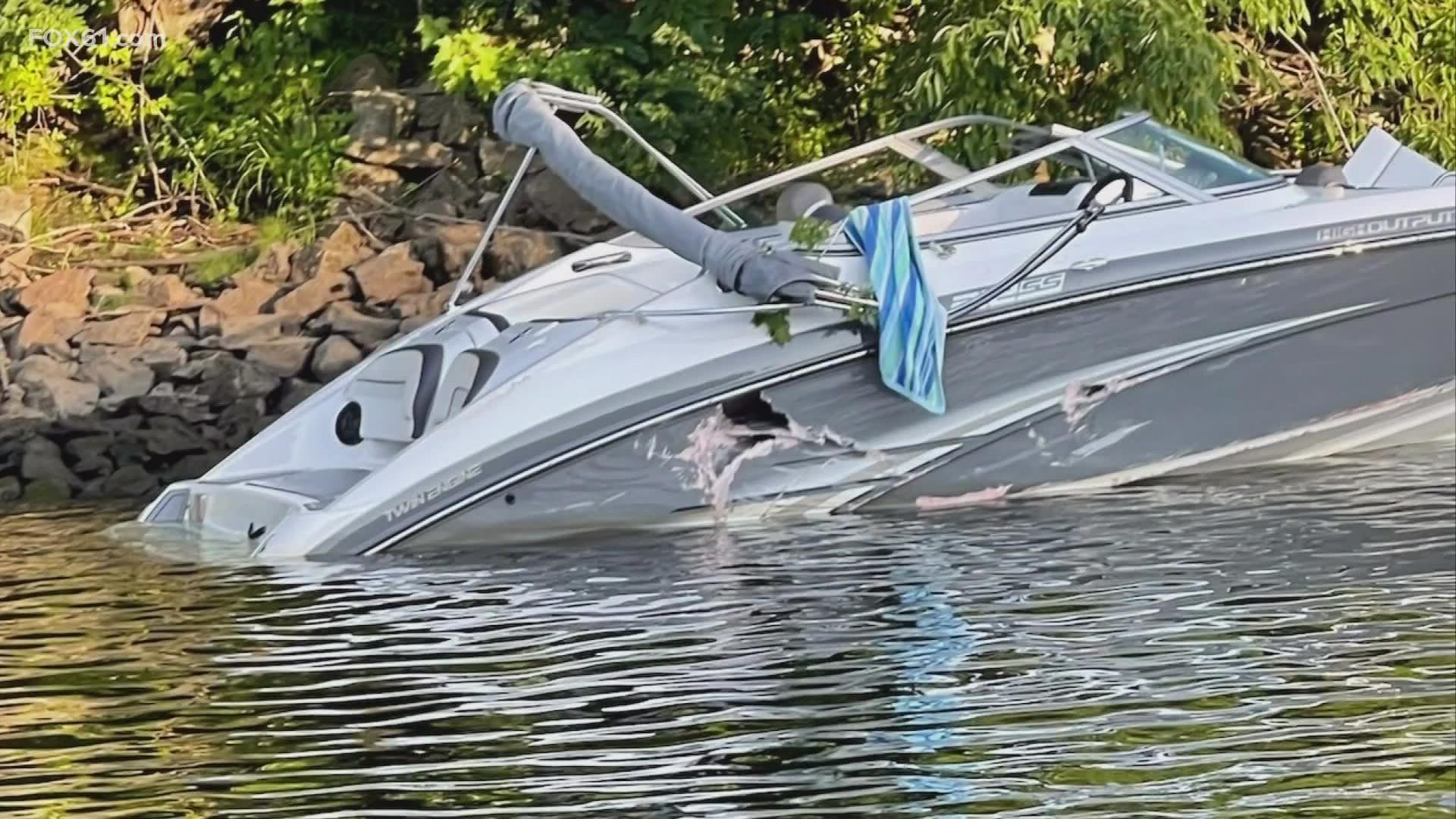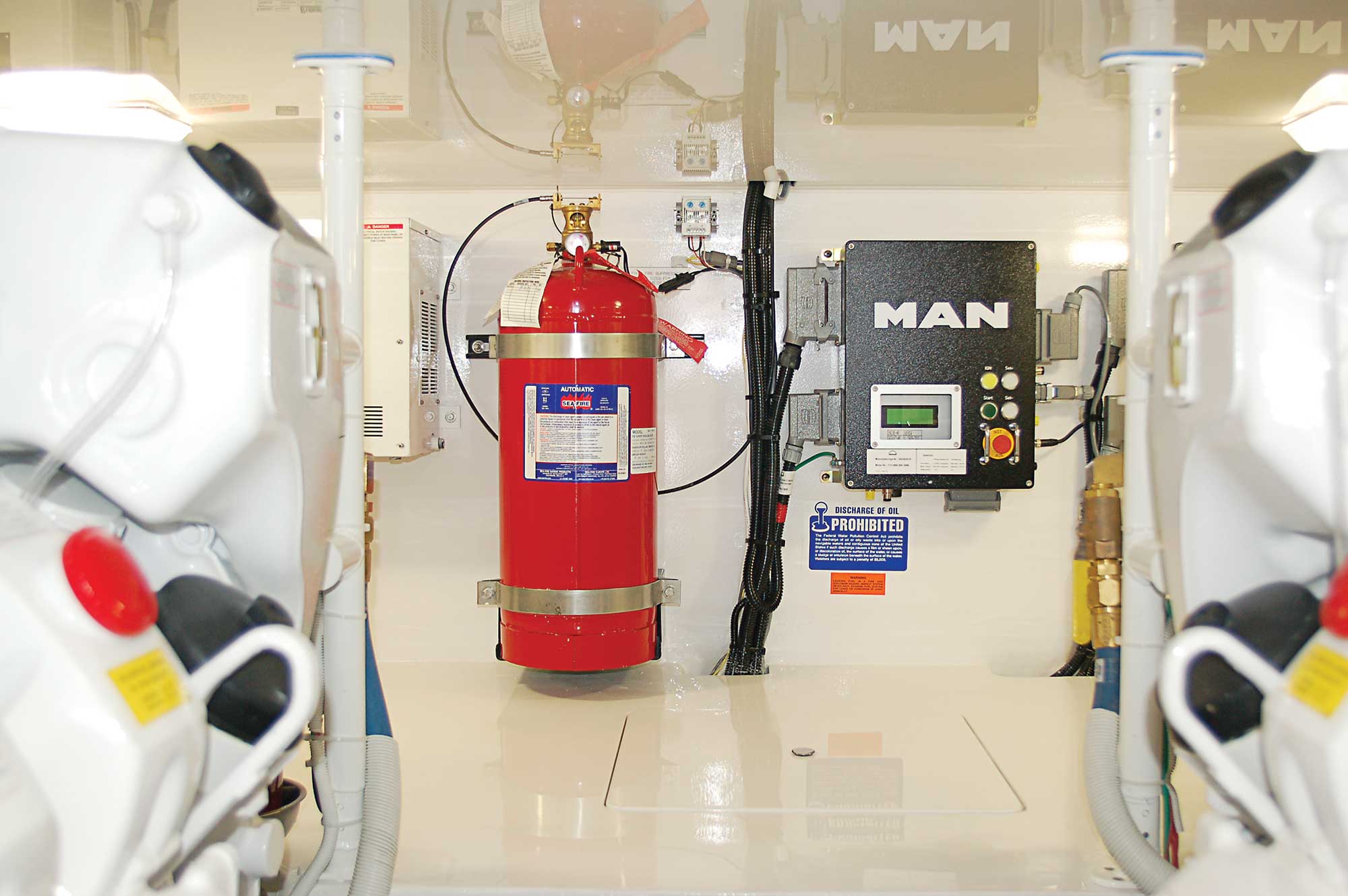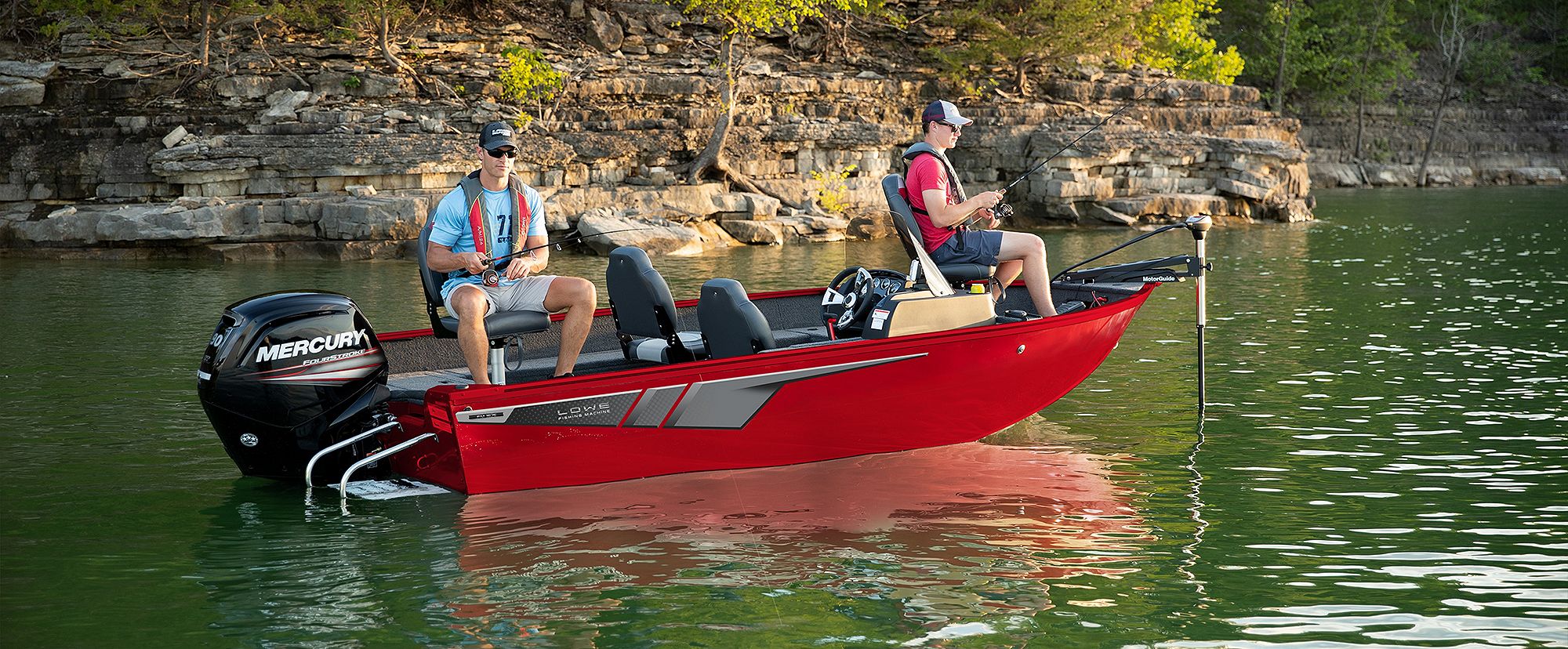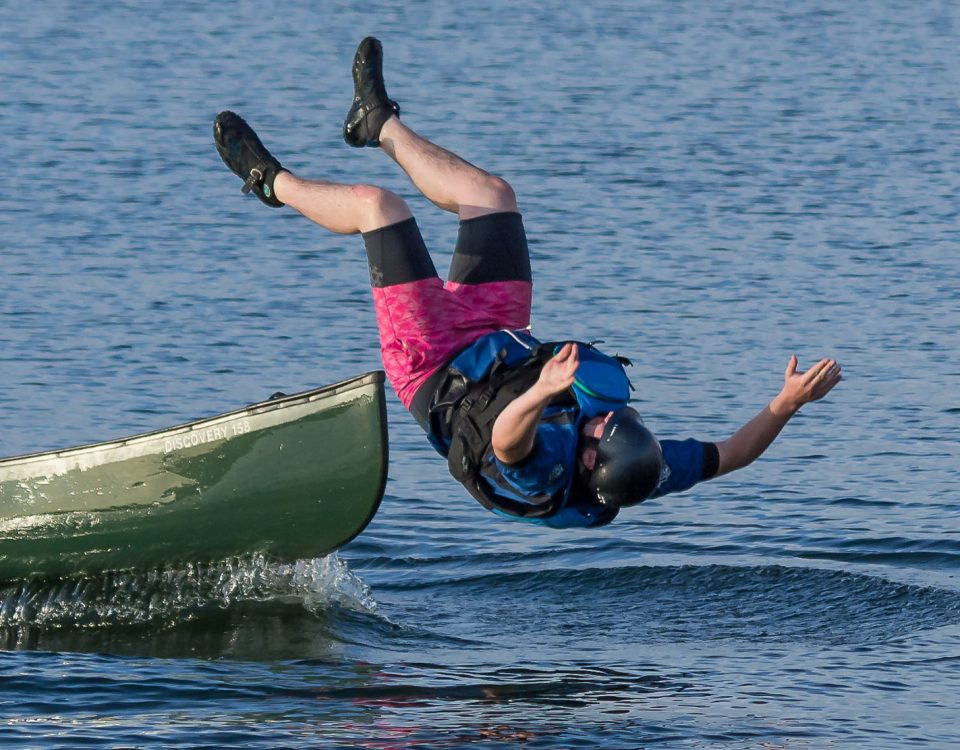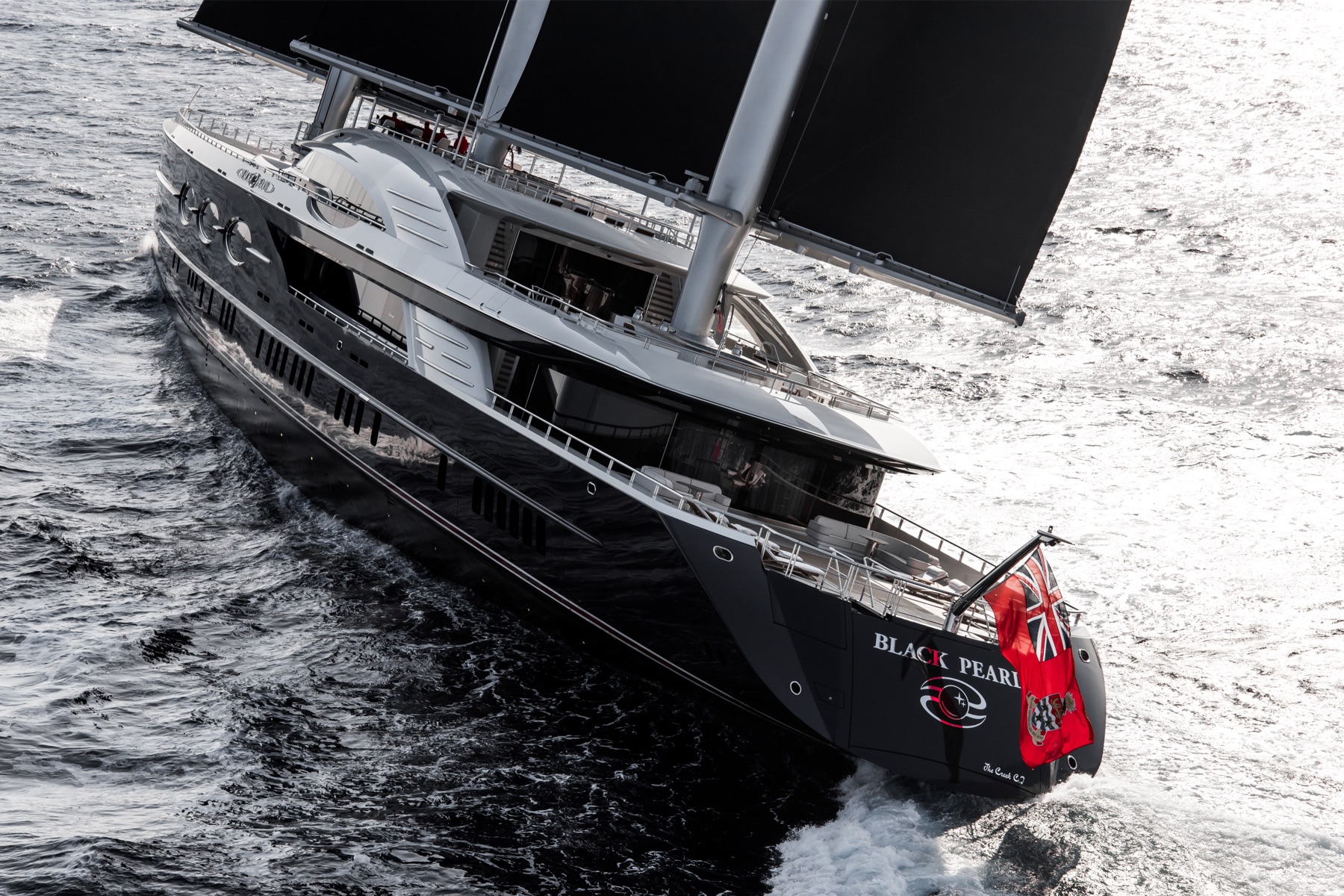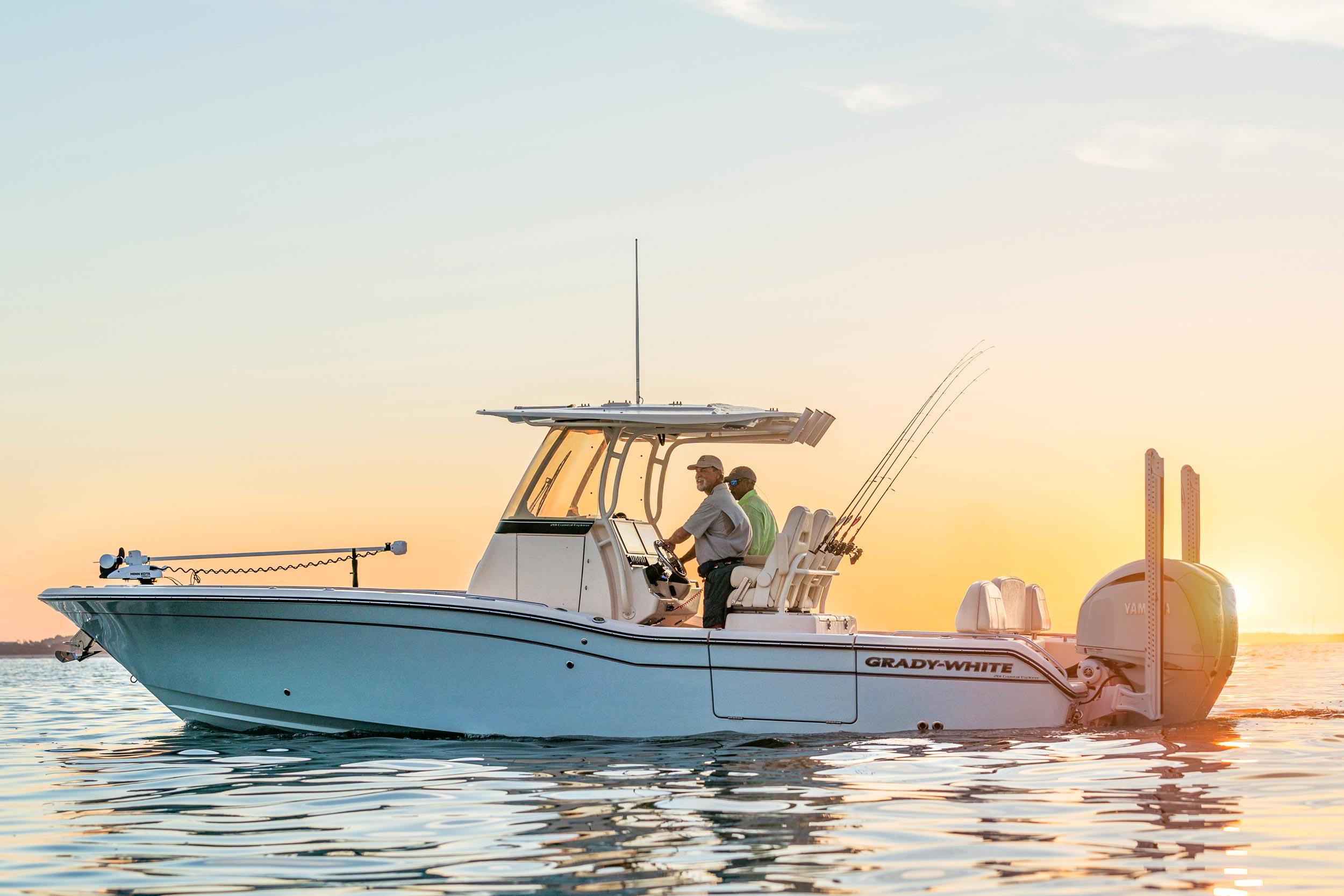Which of These Causes the Most Boating Collisions? Top Factors Explained
Inattention is the single most important cause of boating collisions. Many boaters often underestimate the impact of distraction or fatigue, leading to accidents.
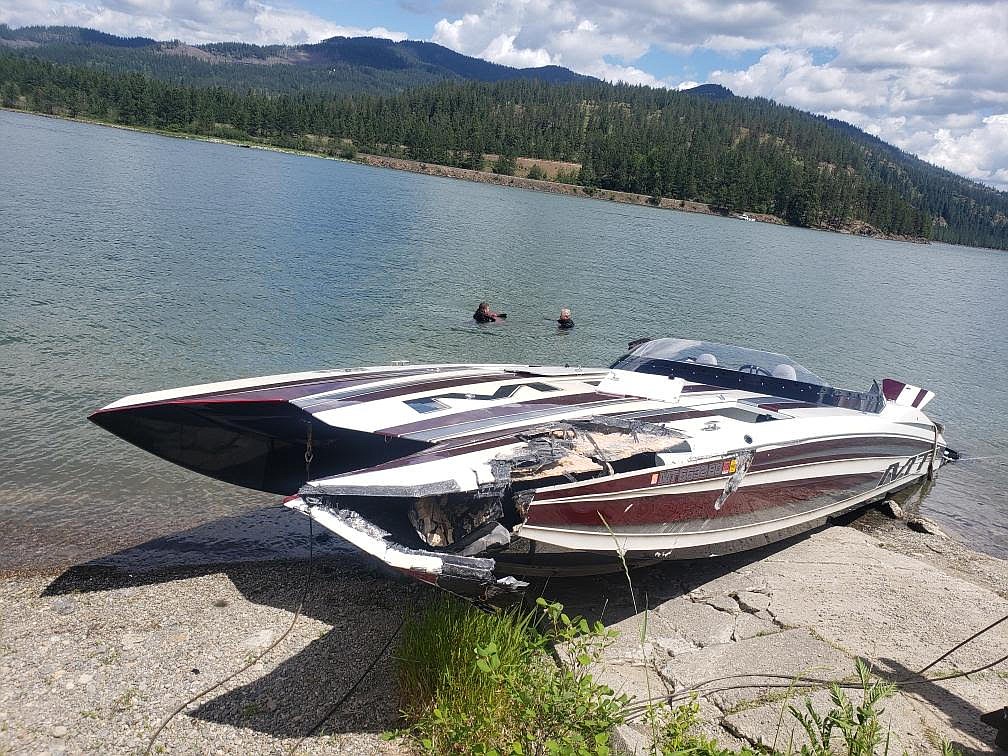
Whether it's chatting with friends or simply being complacent, not paying attention can have serious consequences on the water.
Capsizing and swamping are also significant contributors to boating accidents. These situations often catch boaters off guard, regardless of their experience level.
When a boat overturns or fills with water, it can quickly escalate into a dangerous emergency.
Environmental conditions such as weather and water currents further increase the risk of collisions.
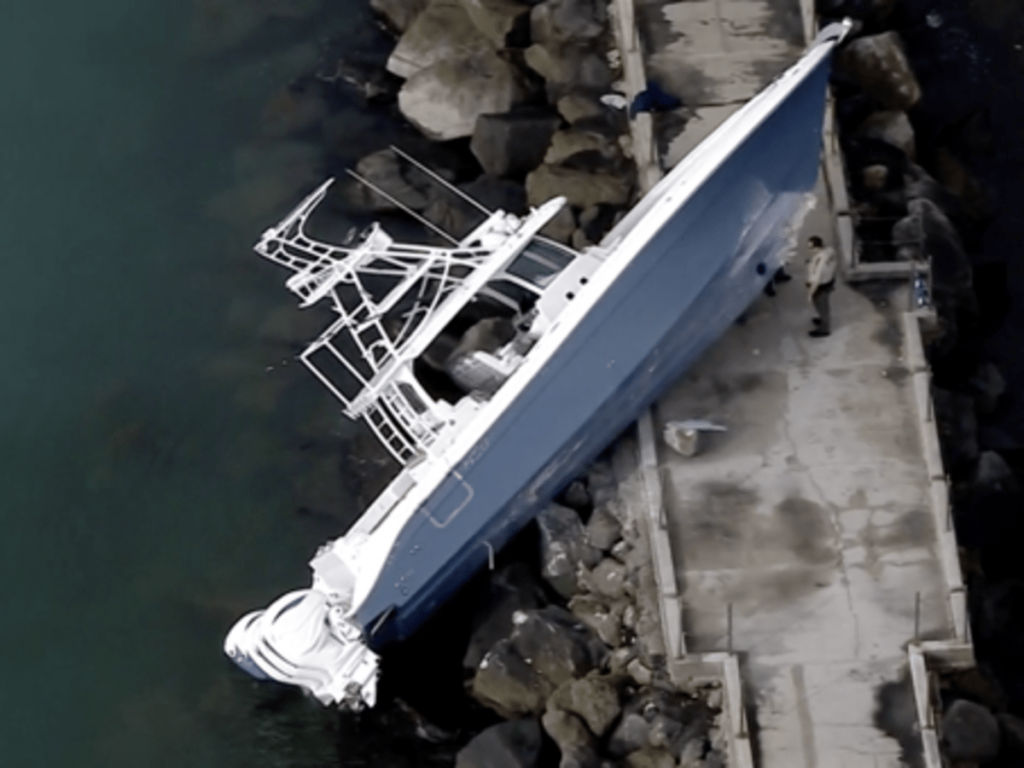
Proper preparation and vigilance are crucial for boaters to navigate safely under such conditions.
Key Takeaways
- Inattention is the leading cause of boating collisions.
- Capsizing and swamping contribute significantly to accidents.
- Environmental conditions play a crucial role in boating safety.
Leading Causes of Boating Collisions
Boating collisions often occur due to a combination of human error and disregard for safety regulations.
Key causes include operator inattention, excessive speed, and alcohol use.
Operator Inattention and Inexperience
Operator inattention is a major cause of boating collisions. Boat operators may become distracted or fail to notice other vessels and obstacles.
Inexperienced operators, unfamiliar with handling the boat or reading nautical charts, contribute significantly to accidents.
Training and certification programs are essential to reduce these risks.
Operators should focus on their surroundings and understand basic navigation rules.
Excessive Speed
Operating a boat at excessive speed increases the likelihood of collisions.
Higher speeds reduce reaction time and make it harder to avoid obstacles.
Many boating accidents occur because operators ignore local speed limits or fail to slow down in congested areas.
Adhering to speed limits and slowing down in areas with heavy traffic can prevent accidents.
Alcohol and Substance Use
Alcohol use is a leading factor in fatal boating accidents. When boat operators consume alcohol, their judgment and reflexes are impaired.
This increases the risk of collisions and fatalities.
Avoiding alcohol and other substances while operating a boat is crucial for safety.
Even small amounts of alcohol can affect an operator’s abilities.
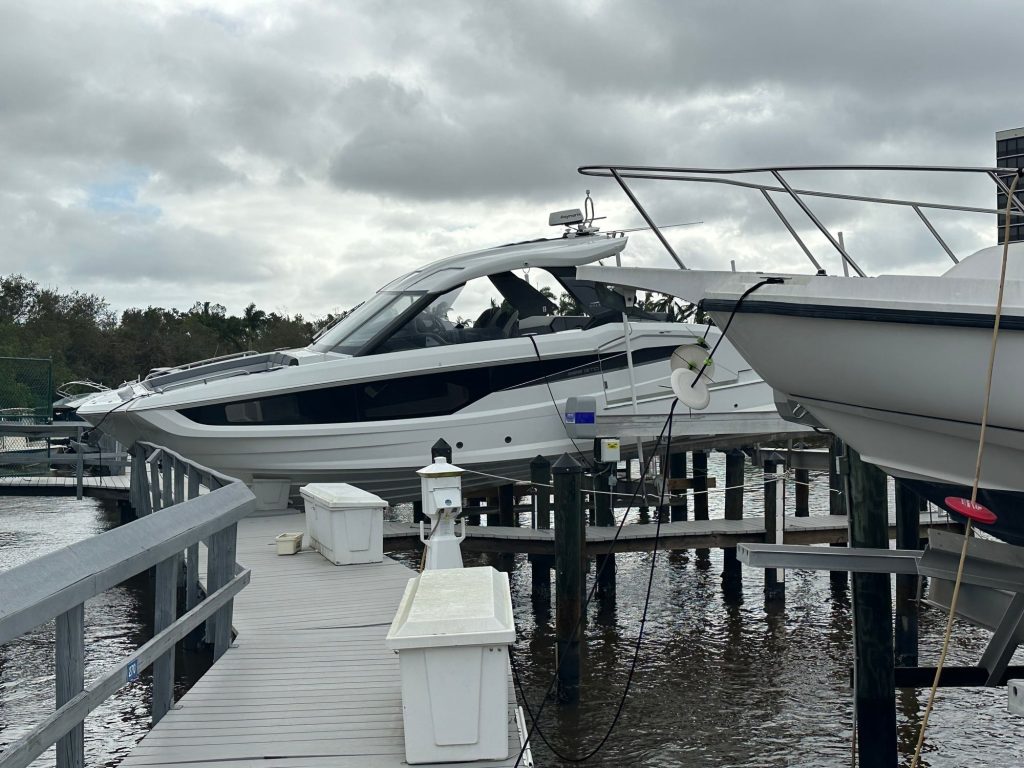
Improper Lookout
Failing to maintain a proper lookout leads to many boating collisions.
Operators must keep an eye on their surroundings, including other vessels, buoys, and changes in weather.
Having a second person assist as a lookout can be beneficial.
Proper lookout practices help in early detection of potential hazards, reducing the chances of accidents.
Violating Navigation Rules
Violating navigation rules often results in collisions.
Boating regulations exist to ensure safe and orderly movement on the water.
Ignoring these rules can lead to collisions and other accidents.
Understanding and adhering to navigation rules is critical.
Operators should familiarize themselves with right-of-way rules and marker buoys to avoid crashes.
Environmental Conditions Leading to Accidents
Environmental factors play a significant role in boating safety.
Key conditions like adverse weather, water currents, and nighttime navigation can greatly impact the likelihood of accidents.
Weather Challenges
Weather conditions such as strong wind, heavy rain, and sudden changes can create dangerous scenarios for boaters.
High winds can cause waves to become larger and more forceful. This increases the risk of boats capsizing or passengers falling overboard.
Heavy rain impacts visibility, making it difficult to see other boats, obstacles, or shorelines.
Lightning storms are particularly dangerous for those on the water, posing a risk of direct strikes and causing panic or abrupt movements that might lead to accidents.
Properly checking the weather forecast and understanding the potential risks helps in planning a safer trip.
Water Currents and Waves
Strong currents and large waves are common environmental hazards that contribute to boating accidents.
Currents can push a boat off course, leading to collisions with other vessels or stationary objects.
The force of wave impacts can cause boats to capsize or take on water, further increasing the risk of drownings and injuries.
Navigating tidal areas requires extra caution since tides can drastically change water levels and current strength.
Inexperienced boaters might underestimate the power of these currents, leading to severe accidents.
Awareness and preparation are crucial for handling these conditions safely.
Navigating at Night
Nighttime navigation presents unique challenges due to reduced visibility.
The use of navigation lights is critical for ensuring that other boats can see and avoid collisions.
Poor visibility at night makes it harder to spot obstacles, such as buoys, docks, or other vessels, increasing the likelihood of crashes.
Strong wind and currents can further complicate nighttime boating, making it difficult to maintain control and direction.
Boaters need to understand their navigation equipment, ensure all lights are functioning, and proceed with caution to avoid accidents during night operations.
Accident Prevention and Safety Measures
Boating safety involves a combination of proper equipment, responsible operation, education, and adhering to capacity limits. Each component plays a crucial role in preventing accidents and ensuring a safe experience on the water. https://www.youtube.com/embed/G7AKfY7JSpY
Essential Safety Equipment
Boating safety starts with having the right equipment. The most critical items include life jackets, also known as Personal Flotation Devices (PFDs).
The U.S. Coast Guard recommends that every person onboard wear a properly fitting life jacket. In many fatal boating accidents, victims were not wearing life jackets.
Other essential safety gear includes a first aid kit, fire extinguisher, visual distress signals, and a sound-producing device like a horn or whistle.
Navigation lights are important for visibility, especially at night. Owners should regularly check all equipment to make sure it is in good working condition.
Responsible Operation
Safe boating requires responsible operation by the vessel's operator.
Operator inattention, improper lookout, and inexperience are major causes of accidents.
The operator should always stay alert, especially in congested areas or under adverse weather conditions.
It is crucial to follow speed limits and avoid risky maneuvers.
Operators should understand and follow the “rules of the road” on the water, such as knowing which vessel should give way or act as the stand-on vessel.
Maintaining a safe speed and having an appropriate approach to other vessels are also important for preventing collisions.
Boating Safety Education
Education is key to safe boating.
A boating safety course can provide operators with vital safety information and practical knowledge.
These courses are often offered by the U.S. Coast Guard Auxiliary and other organizations.
The course covers navigation rules, emergency procedures, and proper boat handling.
Operators who complete a boating safety course are usually more adept at preventing accidents.
Many states require operators to take such a course before they can legally operate a boat. Education reduces the risk of accidents caused by inexperience and boosts overall safety.
Adhering to Vessel Capacity
Following the capacity limits of a vessel is crucial for safety.
Each boat comes with a capacity plate that specifies the maximum weight and the number of people it can safely carry.
Overloading the boat can lead to instability, capsizing, or swamping.
Operators should not exceed the vessel’s capacity and should evenly distribute weight to maintain balance.
Paying attention to the capacity plate ensures that the boat remains stable and safe under various conditions.
Emergency Handling and Accident Response
Being prepared and knowing how to respond during boating emergencies can be crucial in saving lives and reducing the severity of accidents. Key areas include preparation for unforeseen events, handling vessel capsizing or man overboard situations, and strategies for avoiding and managing collisions.
Preparing for the Unexpected
Boat owners should always conduct a safety check before heading out. This includes ensuring all passengers have appropriate life jackets.
Owners should also check safety equipment like fire extinguishers and flares. It's essential to file a float plan with someone onshore, detailing the intended route and expected return time.
Fueling the boat should be done carefully to avoid spills. The owner should also have a clear strategy for grounding situations.
Training in basic first aid and emergency response can be lifesaving in case of injuries. Alcohol should be avoided while operating the vessel to maintain alertness and coordination.
Response to Vessel Capsizing and Man Overboard
Capsizing and falling overboard are significant risks. In case of capsizing, everyone should remain calm and stay with the boat if it is still floating. Life jackets are critical, so everyone must put one on immediately if they haven't already.
For man overboard situations, the first step is to shout "Man Overboard!" to alert everyone. Then, the vessel should be turned around carefully to return to the person.
A throwable flotation device should be used to assist the person in the water. Maintaining eye contact and communication with the overboard person helps keep them calm until they are safely back on the boat.
Avoiding and Managing Collisions
Collisions are often due to operator inattention or failure to yield. Operators must understand right-of-way rules and maintain a proper lookout, especially in crowded waterways.
Collisions can also occur from grounding, so knowing the water depth and using nautical charts is important.
In case of an imminent collision, reducing speed and changing course can help avoid it. If a collision occurs, make sure everyone is safe and then assess the damage.
It’s essential to exchange information with the other vessel and report the accident to the authorities if there are injuries or significant damage.
Post-accident Procedures
After a boating accident, specific steps need to be followed to ensure safety and comply with the law. These procedures involve immediate and accurate reporting, thorough accident investigation, and understanding legal responsibilities and consequences.
Reporting Accidents
When a boating accident occurs, it is crucial to report the incident as required by law.
- Immediate Notification: Contact emergency services or the Coast Guard. Quick reporting can save lives and limit damage.
- Accurate Information: Provide detailed information such as the location of the accident, number of people involved, and extent of injuries or damage.
- Written Reports: In some cases, a written report must be submitted within a specific timeframe. Check local navigation rules and regulations for specific requirements.
Accident Investigation
An investigation aims to determine the cause and prevent future accidents. This process involves multiple steps and various authorities.
- Inspecting the Scene: Investigators will thoroughly examine the accident location. They will look for evidence like damage to the boat, environmental factors, and the positions of vessels.
- Interviewing Witnesses: Statements from involved parties and witnesses are crucial. Accurate accounts help in understanding the sequence of events.
- Reviewing Logs and Records: Officers will review navigation logs, maintenance records, and communications. This helps to identify any machinery failure or human error.
Legal Responsibilities and Consequences
Boaters have both legal responsibilities and potential consequences after an accident. Knowing these can help in navigating post-accident procedures effectively.
- Aid to Injured Parties: By law, the operator must offer assistance to anyone injured in the accident. Failure to do so can result in serious legal repercussions.
- Consequences of Negligence: If the investigation finds fault, the responsible party could face fines, imprisonment, or both. Consequences depend on the severity of the accident and local laws.
- Insurance Claims: Proper reporting and following legal procedures are necessary for insurance claims. This can help in covering damages and medical expenses.
Recreational Boating Statistics
Recreational boating remains a popular activity, but it carries risks. Understanding these risks can help improve safety.
Accident Statistics: The U.S. Coast Guard tracks all reported recreational boating accidents in the United States. In 2022, there were 636 boating fatalities. This marked a 3.3% decrease from the 658 deaths in 2021 (source).
Boating Fatalities and Injuries: Boating accidents resulted in numerous injuries and fatalities. For instance, in 2020, there were 5.2 deaths per 100,000 registered recreational vessels (source).
Leading Causes: A major contributing factor to fatal boating accidents is alcohol use. This remains a critical area to address for improving safety (source).
Statistics Overview:
- Year: 2022
- Fatalities: 636
- Decrease from 2021: 3.3%
In 2019, recreational boating accidents caused 613 deaths and 2,559 injuries. The economic impact included approximately $55 million in property damage.
Frequently Asked Questions
Boating safety requires constant vigilance, awareness of one's surroundings, and adherence to established rules and guidelines. These practices help prevent accidents and ensure the safety of all boaters.
How does a vessel operator ensure they are keeping a proper lookout while boating?
A vessel operator must continuously observe the water, other boats, and potential obstacles. This involves scanning the horizon, checking blind spots, and using navigation tools to monitor positions and movements.
What are the responsibilities of boat operators regarding maintaining a lookout?
Boat operators need to stay alert and actively monitor their surroundings. This means watching for other vessels, obstacles, and changes in weather. They should also ensure that crew members are helping to spot any dangers.
What actions are vessel operators required to take to prevent accidents at sea?
Operators must follow navigation rules, maintain safe speeds, and be prepared to take evasive actions if necessary. Regularly checking weather forecasts and avoiding risky conditions are also key steps.
What type of report is mandated following a boating accident?
In the event of a boating accident, operators are required to file an accident report. This report typically includes details such as the nature of the accident, damages, injuries, and any contributing factors. The U.S. Coast Guard compiles statistics from these reports to monitor and improve boating safety.
Under what circumstances may navigation rules be disregarded?
Navigation rules can be disregarded only if doing so avoids immediate danger. Operators must still take caution and ensure their actions are safe for everyone involved.
In an area with multiple boats, what are the collision avoidance responsibilities for each operator?
Each boat operator must follow right-of-way rules. They must also be prepared to yield or adjust course to avoid a collision.
They must maintain communication and make their intentions clear to other boaters to ensure mutual understanding and safety.
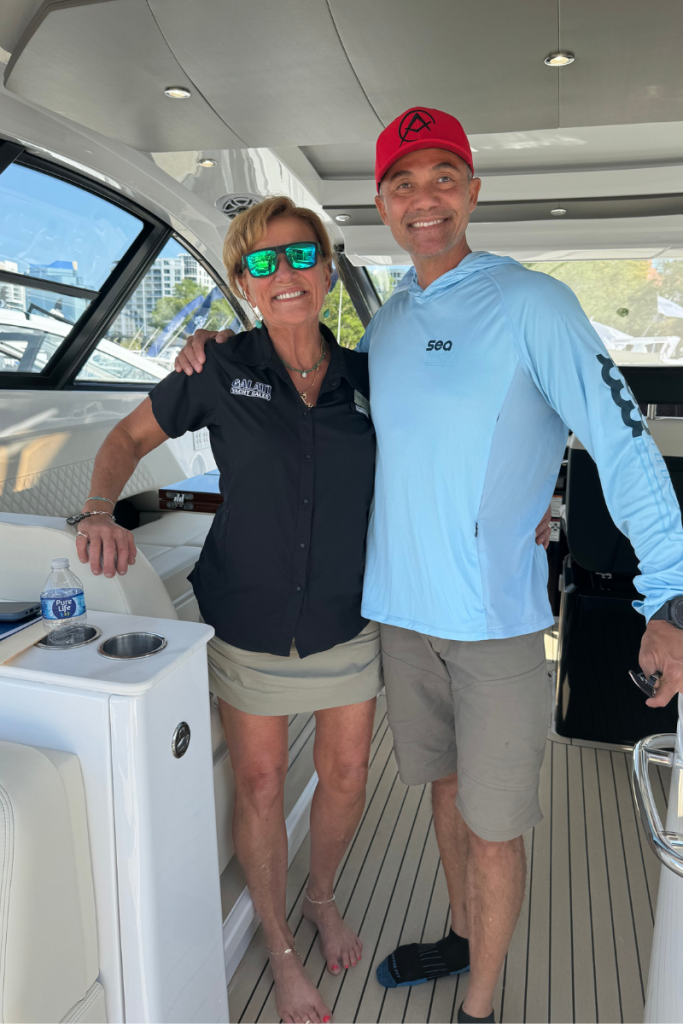
Q&A With USCG
Charlie (Sea Magazine): Good afternoon, Madeline. Thanks for taking the time to speak with Sea Magazine. We're very interested in understanding what actions cause the most boating collisions. Let's start with the basics. What are the most common causes of boating accidents?
Madeline (USCG): Good afternoon, Charlie. I'm happy to be here. The most common causes of boating accidents include operator inexperience, improper lookout, excessive speed, and alcohol use. These factors contribute significantly to boat crashes and serious injuries.
Charlie: Operator inexperience sounds like a major issue. How does that specifically lead to accidents?
Madeline: Inexperienced operators often fail to understand maritime rules and the importance of maintaining a proper lookout for other vessels and hazards. They may not be familiar with the boat's handling characteristics or the importance of regular maintenance, leading to equipment failure. This lack of knowledge increases the likelihood of collisions, especially in hazardous waters.

Charlie: Speaking of hazardous conditions, how do weather conditions factor into boating accidents?
Madeline: Poor weather conditions, such as strong winds and rough waters, are leading contributing factors to boating accidents. Boaters may not be prepared for sudden changes in the weather, which can lead to loss of control and falls overboard. It's crucial to monitor the weather and ensure appropriate equipment, like life preservers, is onboard.
Charlie: What about the role of alcohol in boating accidents?
Madeline: Alcohol is a significant factor in many boating deaths and fatal accidents. Even a small amount of alcohol can impair a boater's judgment, balance, and reaction times. The US Coast Guard strictly enforces laws related to blood alcohol content for boat operators. Operating a vessel under the influence is a criminal offense and can have severe consequences.
Charlie: How important is boat speed in preventing collisions?
Madeline: Maintaining a safe speed is critical, especially in crowded or unfamiliar waters. Excessive speed reduces the operator's ability to react to sudden obstacles or changes in the boat's surroundings. Slower speeds allow for better control and more time to make decisions, reducing the likelihood of collisions.
Charlie: Are there specific actions boaters should take to avoid collisions with other vessels?
Madeline: Absolutely. Boaters should always be aware of their surroundings and maintain a proper lookout for surrounding boats and anchored vessels. Following all maritime rules and ensuring they understand the relevant laws is crucial. Additionally, they should use appropriate signals and lights to communicate their intentions to other boaters.
Charlie: What about equipment onboard? How does it play a role in boating safety?
Madeline: Having the appropriate equipment is essential. This includes life preservers, fire extinguishers, and communication devices. Regular maintenance of this equipment ensures it's functional when needed. Equipment failure can lead to serious accidents, so it's vital to check everything before heading out.
Charlie: In the unfortunate event of a boating accident, what steps should victims take to seek compensation?
Madeline: Victims of boating accidents should first seek medical attention for any injuries. They should document the accident and gather information from witnesses and other involved parties. Consulting with a law firm that specializes in boating accident cases can provide a free consultation to discuss their options for seeking compensation. This can cover medical bills and other damages resulting from the accident.
Charlie: Finally, what advice would you give to boaters to prevent the most common causes of accidents?
Madeline: My advice would be to always prioritize safety. Take boating safety courses to understand the risks and proper procedures. Always check the weather forecast, maintain your vessel, and ensure you have all the necessary equipment onboard. Avoid alcohol while operating a boat and always maintain a proper lookout. By following these guidelines, boaters can significantly reduce the risk of accidents and ensure a safe and enjoyable experience on the water.
Charlie (Sea Magazine): Let's delve a bit more into some specifics. Can you talk about how collisions with anchored vessels typically occur and how they can be prevented?
Madeline (USCG): Collisions with anchored vessels usually happen when an operator isn't paying sufficient attention to their surroundings or when they're unfamiliar with the area. These collisions can be avoided by maintaining a proper lookout at all times and reducing speed in areas where boats are likely to be anchored. Using navigation charts and GPS can also help identify anchorage zones and avoid them.
Charlie: How significant is the issue of equipment failure, and what types of equipment failures are most common?
Madeline: Equipment failure is a significant cause of boating accidents. Common failures include engine problems, steering system failures, and issues with bilge pumps. Regular maintenance is crucial to prevent these failures. Boat operators should follow the manufacturer's maintenance schedule and conduct pre-departure checks to ensure everything is in working order.
Charlie: You mentioned falls overboard earlier. What precautions can be taken to prevent people from falling overboard?
Madeline: To prevent falls overboard, operators should ensure that all passengers are seated while the boat is moving and avoid sudden or sharp turns. Using safety lines and rails can provide additional security. It's also essential for everyone on board to wear life preservers, as they can save lives if someone does fall overboard.
Charlie: How do maritime rules and regulations play into preventing boating accidents?
Madeline: Maritime rules and regulations are designed to ensure safe navigation and operation of vessels. These rules include speed limits, right-of-way regulations, and requirements for lights and signals. Adhering to these rules helps prevent collisions and other accidents. Boaters should take the time to learn and understand these regulations, as they are essential for safe boating.
Charlie: Can you elaborate on the legal aspects of boating accidents, such as seeking compensation and understanding relevant laws?
Madeline: After a boating accident, understanding the relevant laws is crucial. Victims should report the accident to the authorities and gather as much evidence as possible, including photos and witness statements. Seeking legal advice from a specialized law firm can help victims understand their rights and options. Many law firms offer a free consultation to discuss potential compensation for medical bills, property damage, and other losses.
Charlie: How does operator inexperience contribute to the majority of boating accidents, and what can be done to address this issue?
Madeline: Operator inexperience is a major contributing factor because inexperienced operators often lack the skills and knowledge needed to navigate safely. This includes understanding how to handle the boat, recognize hazards, and respond to emergencies. To address this, new boaters should take comprehensive boating safety courses that cover all these aspects. Many states require these courses for certification, which helps ensure that operators are better prepared.
Charlie: In terms of hazardous waters and poor weather conditions, what should boaters keep in mind to stay safe?
Madeline: Boaters should always check the weather forecast before heading out and be prepared to change their plans if conditions are unsafe. Strong winds, high waves, and poor visibility can all create dangerous situations. Boaters should also be familiar with the area and aware of any local hazards, such as rocks or shallow waters. If they find themselves in poor weather conditions, slowing down and carefully navigating can help prevent accidents.
Charlie: How can boat passengers contribute to overall boating safety?
Madeline: Passengers play a crucial role in boating safety by following the operator's instructions, wearing life preservers, and staying seated while the boat is in motion. They should also be aware of their surroundings and avoid any actions that could distract the operator. Passengers can assist with lookout duties and help manage the boat's equipment, contributing to a safer environment for everyone on board.
Charlie: Finally, what resources are available for boaters who want to learn more about boating safety and accident prevention?
Madeline: The US Coast Guard offers a wealth of resources on boating safety, including online courses, safety guides, and local safety events. Many states also have boating safety programs and courses that are often required for certification. Additionally, organizations like the National Safe Boating Council provide valuable information and resources. Boaters should take advantage of these opportunities to enhance their knowledge and skills.
Charlie (Sea Magazine): Madeline, I'd like to touch on how boating accidents compare to motor vehicle accidents. Are there similarities in the leading contributing factors?
Madeline (USCG): Yes, there are some similarities. Just like with motor vehicle accidents, operator inexperience, distracted operation, and impaired operation are leading contributing factors in both types of accidents. In boating, however, we also have unique factors such as hazardous weather conditions and the need for awareness of a boat's speed and handling in various water conditions.
Charlie: Can you explain how boaters can ensure they operate their boats safely, especially in adverse weather conditions?
Madeline: Operating a boat safely in hazardous weather conditions requires preparation and vigilance. Boaters should always check the weather forecast before heading out and be prepared to return to shore if conditions worsen. Reducing speed and maintaining a proper lookout are crucial. Additionally, boaters should be familiar with their boat's handling in rough waters and have all the necessary safety equipment on board, including life preservers and signaling devices.
Charlie: What steps can be taken to reduce the risk of people falling overboard?
Madeline: To minimize the risk of people falling overboard, operators should enforce rules that keep passengers seated while the boat is in motion. Installing safety rails and using safety lines can also help. Ensuring that all passengers wear life preservers, especially in rough conditions or when the boat is traveling at higher speeds, is essential for safety.
Charlie: How do speed and awareness of other vessels contribute to the prevention of collisions?
Madeline: Speed and awareness are critical in preventing most collisions. Boaters should always travel at a safe speed for the conditions and be aware of their surroundings, including other vehicles on the water. Maintaining a proper lookout and understanding the rules of the road for boating can help avoid collisions with other vessels. Communication with other boaters, using lights and signals, also plays a vital role in collision prevention.
Charlie: Can you elaborate on the rules that boaters must follow to ensure safety and prevent accidents?
Madeline: Boaters must follow a set of maritime rules designed to ensure safe navigation. These rules include maintaining a safe speed, keeping a proper lookout, understanding right-of-way regulations, and using appropriate lights and signals. Knowing all the rules and adhering to them is crucial for preventing accidents. Boaters should also be aware of local regulations, which can vary by region.
Charlie: How do you see the role of education in preventing the most boating accidents?
Madeline: Education is fundamental in preventing most boating accidents. Boating safety courses teach operators about the rules of the water, proper boat handling, and the importance of safety equipment. These courses also cover how to respond to emergencies and hazardous weather conditions. Educated boaters are more likely to operate their vessels safely and avoid common pitfalls that lead to accidents.
Charlie: What measures can be taken to ensure that boats are properly maintained and safe for operation?
Madeline: Regular maintenance is key to ensuring a boat is safe for operation. This includes checking the engine, steering systems, and all safety equipment before each trip. Following the manufacturer's maintenance schedule and addressing any issues promptly can prevent equipment failures that might lead to accidents. Boaters should also conduct periodic inspections and have their vessels serviced by professionals when needed.
Charlie: What advice would you give to someone involved in a boating accident regarding seeking compensation and understanding their legal rights?
Madeline: If someone is involved in a boating accident, they should first ensure everyone's safety and seek medical attention if needed. They should report the accident to the authorities and document everything, including taking photos and gathering witness statements. Consulting with a law firm that specializes in boating accidents can help victims understand their rights and options for seeking compensation. A free consultation with a legal expert can provide guidance on covering medical bills and other damages.
Charlie: How important is it for boaters to be aware of their boat's speed and surroundings?
Madeline: It's extremely important. A boat's speed directly affects its handling and stopping distance. Boaters must be aware of their surroundings at all times, including other vessels, hazards, and changes in weather conditions. Maintaining a safe speed allows boaters to react appropriately to any situation, reducing the risk of accidents.
Charlie: Lastly, what are some common misconceptions about boating safety that you would like to address?
Madeline: One common misconception is that boating is inherently safer than driving a motor vehicle, leading some people to be less cautious on the water. In reality, the water environment presents unique challenges, and accidents can happen just as easily. Another misconception is that life preservers are only needed for children or weak swimmers. Everyone should wear a life preserver, as accidents can happen unexpectedly, and even strong swimmers can be incapacitated. Lastly, some boaters underestimate the importance of following all the rules and maintaining a proper lookout, which are critical for safe boating.
Charlie: Thank you so much, Madeline. This information is incredibly valuable and will certainly help our readers boat safely and responsibly.
Madeline: Thank you, Charlie. It's been a pleasure discussing these important topics. I hope this information helps promote safer boating practices and reduces the number of boating accidents. Stay safe out there!
Charlie is Editor-in-Chief of Sea Magazine
